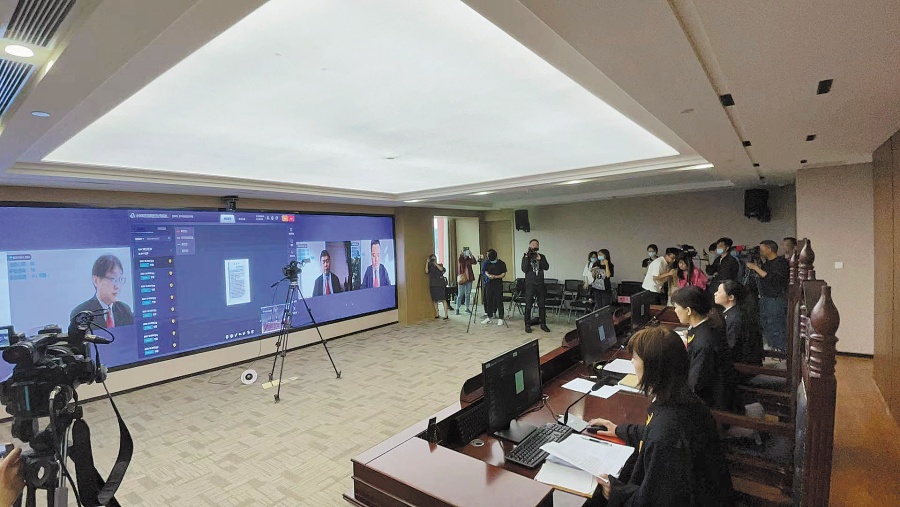Digital advances herald judicial progress
Rapid socioeconomic development and technological innovation lead to more efficient legal system


As the work environment and methods have changed, so has the content of some disputes.
When Ren was at the Chaoyang court, one of her major jobs was to deal with divorce-related disputes. What impressed her most was a trip to the outskirts of Beijing in the early 1990s to help split the family property — a number of pigs — between the divorced couple.
"The pair didn't reach an agreement on the exact number of pigs in their household and how many pigs each side could get, so I went to their home to further investigate and count the pigs," Ren said with a laugh. "Domestic animals were also important family assets at that time, as were savings and household appliances such as televisions, refrigerators and washing machines.
"Since the late 1990s, most divisions of family properties have focused on real estate and private cars," she said, adding that the change is due to the country's economic development and the improvement of people's living standards.
Yan agreed, saying that the establishment of the internet court was to meet people's new legal demands and to seek better solutions for internet-related disputes in the fast-developing digital age.
While the growth of e-commerce and the increase of internet services have made online contract disputes more frequent in recent years, the popularity of online literature has also enhanced the public's awareness of copyright protection, Yan said.
"Emerging businesses and technologies, including artificial intelligence and big data, have brought new types of civil disputes to the world such as those on AI-generated content and the intellectual property of data," she said. "At the same time, they have also challenged the judiciary, urging us to explore new ways to protect the legitimate rights of people and regulate the industrial development by rule of law."


















